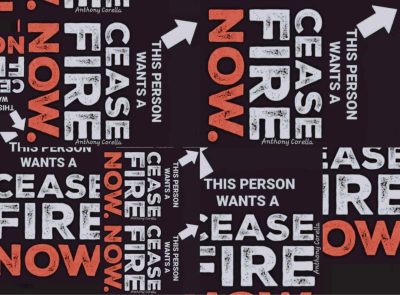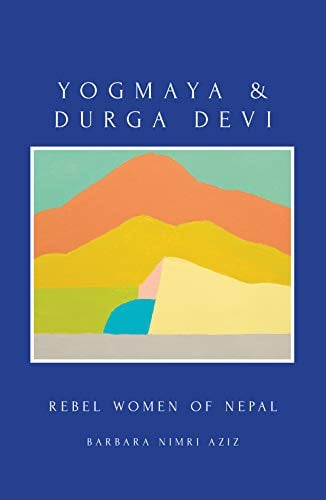War in Gaza: Can You Hear That Fading Cry: “Here, Here; I’m Here”?

All Global Research articles can be read in 51 languages by activating the Translate Website button below the author’s name (only available in desktop version).
To receive Global Research’s Daily Newsletter (selected articles), click here.
Click the share button above to email/forward this article to your friends and colleagues. Follow us on Instagram and Twitter and subscribe to our Telegram Channel. Feel free to repost and share widely Global Research articles.
***
…and thinks for a moment an angel is there
bringing back love
If I must die
let it bring hope
let it be a tale.
-final lines from martyr Refaat Alareer’s “If I must die”
As logic and law fail us, we ruefully, desperately, turn to poetry and our humanity at this awful point in the war against Palestine.
I am not a poet; yet I have to overcome this failing to try to write beyond quotidian facts and analyses. As best I can, I am driven to compose some raw personal emotions that this historical moment demands of me.
Given U.S.’s recent shameful veto on a UNSC resolution for a ceasefire in Gaza, given resupplies of American weapons to Israel for its murderous assault, given dismissed worldwide pleas for a ceasefire, watching individuals turn away in shame, we are driven to search beyond logic, law and statistics.
Today I want to simply impart my sensation upon waking every morning, every one of the past 10 weeks’ mornings. What is kept at bay as I sleep emerges into my semi-aroused consciousness. Before I open my eyes, it rises. Resolute.
Feeling it may relieve the pressure of this wedge I inhabit, I draw my limbs closer to my body. This flattened cavity where I wait is somewhere inside a building that collapsed around me, inside tens of thousands of shattered, splattered, erased homes. Exactly when this happened doesn’t matter. My room where mementoes and books and clothes are buried, are nearby, somewhere, somewhere inside this darkness. I know their scent. Sometimes I hear someone calling a name. Close, yet like a fading star. Inshallah it is Aba. Maybe big sister? No; it’s a new voice – this one doesn’t know my name, doesn’t know I am here.
“Wa! Way-neek, ya binit, ya walid?” it calls. “I am here”, I murmur while knowing no sound can pass over my lips.
My throat is so dry. The only wet I can feel is between my legs, either blood, or my urine. I have soiled myself.
Does this shame mean I am still a person? I suck at my shirt collar and swallow. An instant’s relief.
More explosions—maybe police are coming to save me.
Maybe a big machine to lift all this concrete that’s hiding me. How long I’ve been here, I can’t count.
Some nights, I hear others cry; I answered. Afterwards, they went away. Maybe, I thought, they left to fetch Umo’s car, to pick up Khalti. I sometimes hear planes— they come and go the same as when we were together; when Abi and Immi debated. “Stay inside. No. Go, go out. Better up to the roof. No. Outside is safer. Try to reach the hospital grounds.” Sirens wailed. Ambulances rushed here and there. All through the night. Maybe all day; I didn’t know. Now nothing except big bangs, sometimes near, sometimes far, far away.
“Maybe, if I manage to free my feet, I can scramble out, and, even in this darkness, I can find Immi. She would never abandon me; she must be not far from here. I can give her warmth; she will say again and again ‘Ya binti, ya binti. Humdulillah, you are safe beside me’.
My eyes open. I stretch my arms into New York’s winter air as I slowly awaken. I should find relief emerging from that dim space. Crawling out from under warm blankets, my feet touching soft carpet, my eyes finding blue sky– things I take for granted.
Yet, they won’t allow me to escape the knowledge that bombings and shootings continue their murderous work. I don’t need a reality check from the morning news.
Men and women, if surviving death, are still rounded up – every hour – taken away, wantonly brutalized. Sisters will still wander along the lines of corpses to retrieve little Lena and Umo Khalil. Brother Mahmoud, growing thinner by the day, still riffles through rubbish for a pot of some kind to collect any water or food. It doesn’t matter the neighborhood; men still carry pregnant wives for burial.
There’s nothing different in international news. Except that the vindictive merciless bombing of Palestinians continues, that living conditions worsen, that diplomacy withers. News from Gaza and The West Bank diminishes as heroic journalists there are targeted, and fall.
What is different these past days is the rush of poems and agonized testimonies, among them, appeals from three journalists who have been particularly resolute and piercing in their analyses of the history of Israeli plunder, capitalism, imperial hubris.
One day last week each confessed to being stymied and at a loss. Their personal pleas reveal anger – no, raw anguish and utter helplessness. “I Will Not Look Away” announces the fierce critic, Caitlin Johnstone. Then Craig Murray, former diplomat and human rights advocate, reviewing the Genocide Convention drawn up 75 years ago, ends with: “Is there anybody reading this who really is doing enough to halt so great an evil?” A steadfast moral voice in journalism Chris Hedges channels his anger towards us, ourselves.
“We become drunk on violence; we unleash an orgy of slaughter and destruction…” he charges. All of us.
Images of shameful moments in human history are posted alongside new verses composed from the souls of women and men numbed by the vision of the catastrophe underway. Among them, Lamees Al Ethari declares
“When I can’t speak, I write: …Motherhood in Crisis: Motherhood in these times is/precious and confusing. We watch your fingers/bleed, lifting rubble/rocking bundles of/shrouds, holding firmly to bolted/gates…”
*
Note to readers: Please click the share button above. Follow us on Instagram and Twitter and subscribe to our Telegram Channel. Feel free to repost and share widely Global Research articles.
Barbara Nimri Aziz whose anthropological research has focused on the peoples of the Himalayas is the author of the newly published “Yogmaya and Durga Devi: Rebel Women of Nepal”, available on Amazon.
She is a regular contributor to Global Research.
Featured image is from the author
 “Yogmaya and Durga Devi: Rebel Women of Nepal”
“Yogmaya and Durga Devi: Rebel Women of Nepal”
By Barbara Nimri Aziz
A century ago Yogmaya and Durga Devi, two women champions of justice, emerged from a remote corner of rural Nepal to offer solutions to their nation’s social and political ills. Then they were forgotten.
Years after their demise, in 1980 veteran anthropologist Barbara Nimri Aziz first uncovered their suppressed histories in her comprehensive and accessible biographies. Revelations from her decade of research led to the resurrection of these women and their entry into contemporary Nepali consciousness.
This book captures the daring political campaigns of these rebel women; at the same time it asks us to acknowledge their impact on contemporary feminist thinking. Like many revolutionaries who were vilified in their lifetimes, we learn about the true nature of these leaders’ intelligence, sacrifices, and vision during an era of social and economic oppression in this part of Asia.
After Nepal moved from absolute monarchy to a fledgling democracy and history re-evaluated these pioneers, Dr. Aziz explores their legacies in this book.
Psychologically provocative and astonishingly moving, “Yogmaya and Durga Devi” is a seminal contribution to women’s history.

